Bugatti Specs Top Speed
► Driving one of the fastest cars in the world
► 1587bhp, 273mph top speed
► Have we finally reached peak engine?
In the 1985 French Grand Prix, with Formula 1's turbo era nearing its peak and his 540kg Brabham-BMW BT54 making around 1100bhp in qualifying trim, Swiss driver Marc Surer went through the speed trap at the end of Paul Ricard's 1.1-mile Mistral straight at 210mph, setting a new record for the highest speed recorded in a Grand Prix. In a luxurious road car weighing four times as much I comfortably hit 217mph on the same straight, braking way earlier than Surer would have done on a qualifying lap, and with the car only beginning to hit its stride.
Have we now reached peak engine? The Bugatti Chiron Super Sport is, according to its maker, the fastest production road car you can buy, with the most powerful internal-combustion engine. The Super Sport 300+, of which 30 will be made in the same black-and-orange livery as the record car and all of which are sold, shares the same engine and top speed, and the 10 Centodiecis to be made will also share the engine. The only limit on Super Sport production is that fewer than 50 Chiron build slots remain.
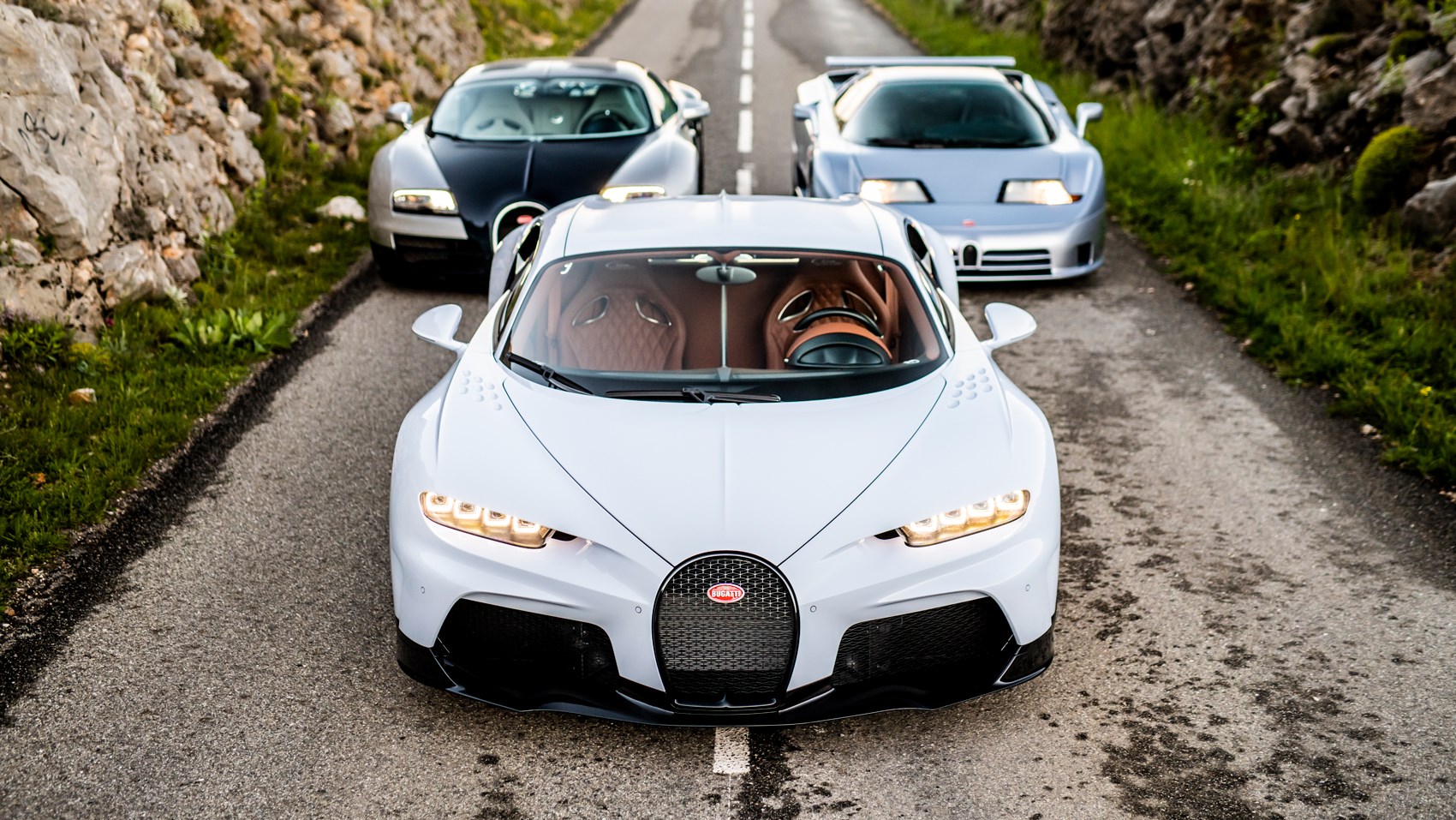
That's a big claim...
And those claims are not without controversy. Hennessey, SSC and Koenigsegg all claim to have cars in the works which will equal or eclipse the Super Sport's 1600PS, or 1587bhp, but not all have yet been homologated and all require E85 fuel to do it: the Chiron makes its power on 98RON. The claim to the speed record is based on the 304.8mph which Andy Wallace hit at VW's Ehra-Lessien track in a prototype Super Sport in August 2019. It was verified by the German TÜV testing and certification agency but was a peak speed, recorded one-way, and the production cars are limited to 273mph. The rivals seem set on breaking that record with two-way runs, and Bugatti says it won't defend it.
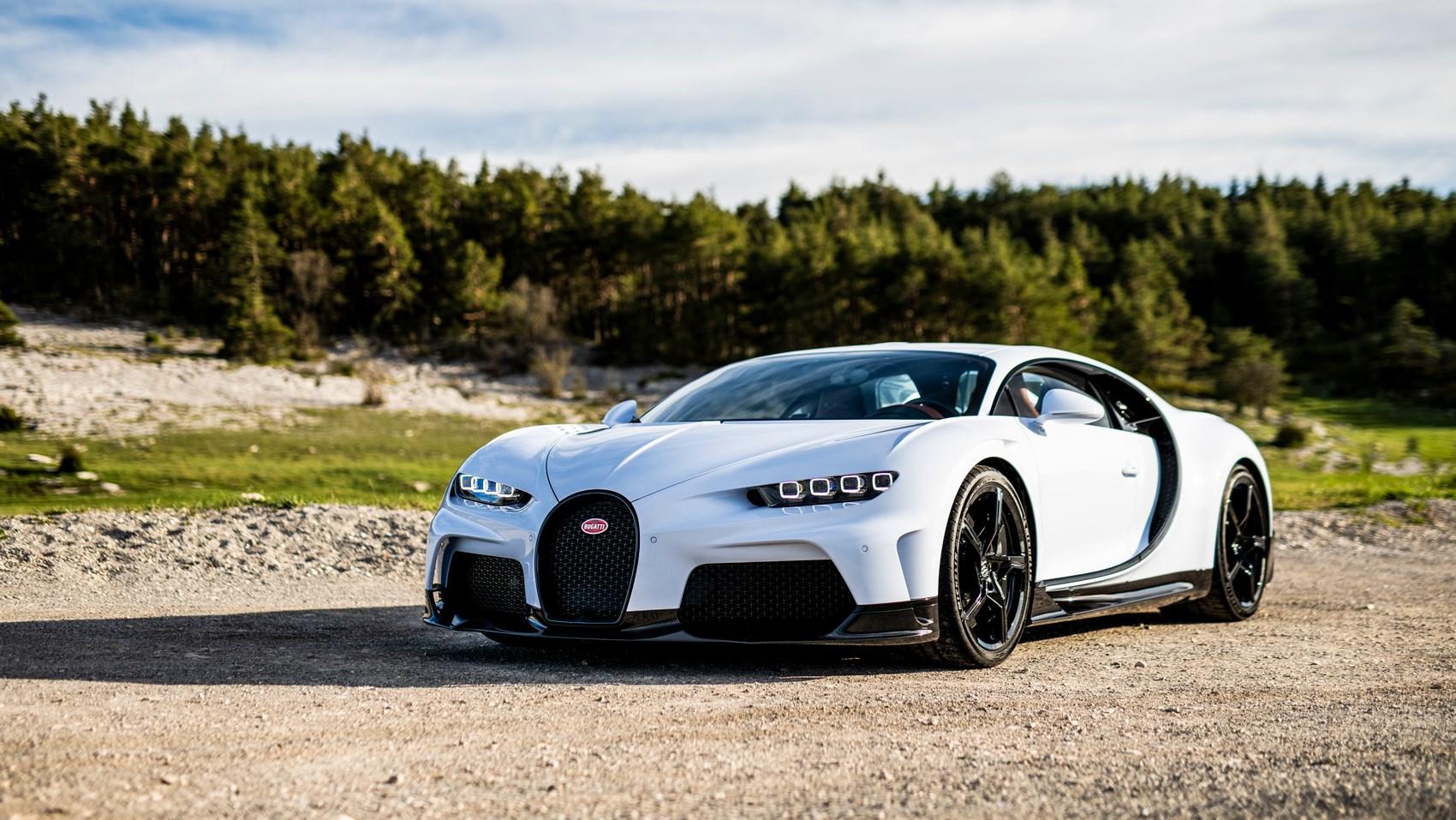
There's plenty more arguing to be done, but as the major manufacturers wind down or cease their development of internal-combustion engines, there's a fair chance that this Super Sport will stand as the most powerful ever combustion-engined production car, certainly from a major manufacturer, and possibly the fastest-ever too.
Let's focus on the car...
It's a spectacular technical achievement, but there's also a faint sadness about it. Not because it's a swansong for petrol engines, but instead because its team of brilliant engineers, designers and aerodynamicists have endlessly rethought and refined every radius and hole and blade to get this vast car through the air at currently unparalleled speeds and with the same safety and stability as VW demands of a Golf, yet few if any owners will ever get close to experiencing what they've made possible. Their achievement is amazing, but almost entirely academic.
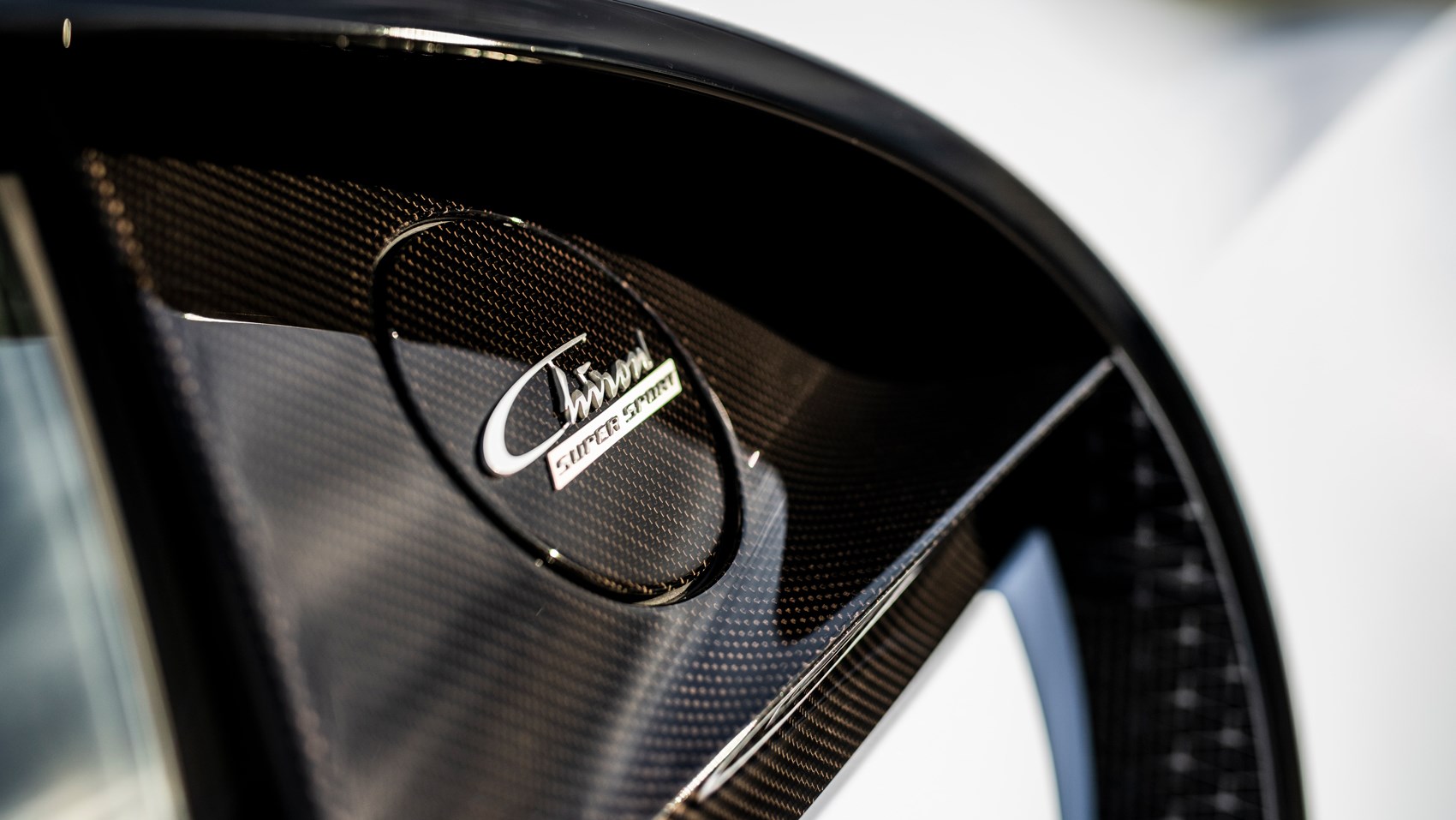
I don't want to denigrate the efforts of the powertrain engineers, but the Super Sport's additional 100PS (98.6bhp) was bought fairly cheap by bolting four larger turbos to its 8.0-litre W16 engine. The rev limit has been raised by 300rpm to 7100, with peak torque of 1176lb ft now available between 2250 and 7000rpm, rather than 6000. Top gear (seventh) is now 3.6 per cent longer. The suspension has been stiffened slightly and the adaptive damping, ESC and steering maps have all been tweaked for better high-speed stability. Michelin has developed bespoke Pilot Sport Cup 2 tyres for the car which are rated to 310mph, or 500km/h (another record) and which were run on the rig created to test Space Shuttle tyres to be sure they could withstand the 5300g generated at their circumference at that speed. At v-max, the 44g tyre pressure monitor that sits in the wheel well weighs as much as two grown men. Each tyre is X-rayed for imperfections before delivery.
There has to be some incredible aero at work...
It's perhaps the most impressive part of the recipe, able to get a car shaped like a wing through the air at way beyond airliner take-off speed, while keeping the car's own wing flat on the deck to cut drag. The front end has been artfully sliced, drilled and radiused to make the passing air cleave to the body in a perfect laminar flow. Nine holes atop each front wing relieve pressure in the arches, but also reference the EB110 Super Sport, which had a thousand horsepower less.
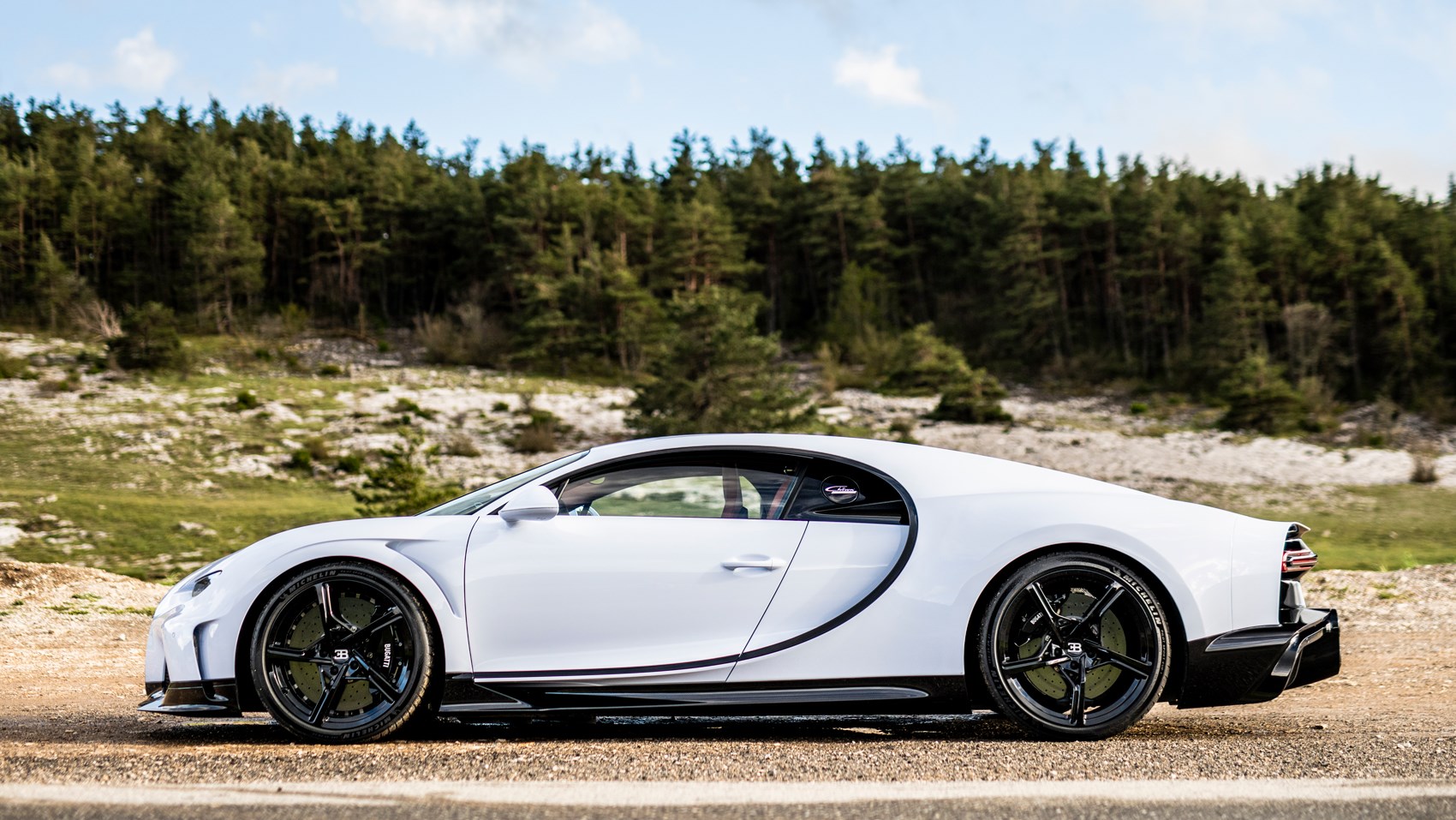
At the back, the Super Sport gains a striking new long-tail configuration, with an exuberant carbonfibre moulding adding 25cm to the length, cutting drag by keeping the air attached for longer and reducing by 44 per cent the vertical 'tear-off' area at the very back where the air finally departs and goes turbulent. It also enables a longer underbody diffuser - the longest on any production car, its designer Frank Heyl claims – with the exhausts now stacked vertically to give the diffuser more surface area.
There's a subtle nod to the late Ferdinand Piëch there too; the man who bought Bugatti for Volkswagen, and whose pet project the original Veyron was. His Porsche 917 used a 'langheck' configuration to sort out its high-speed stability, but while the short 917 'kurzhecks' look way better, I think the long-tail Chiron is the best of its breed, and I'm not ashamed to say that I photographed it like a fanboy before I drove it.
So how does it feel driving the world's most powerful car?
On the road, you'd need to be a neurological marvel to detect the Super Sport's extra power over a standard car. The Pur Sport, with its standard engine but shorter gearing and significantly stiffer suspension feels way more agile and urgent on the road, and makes the Super Sport feel bloated and unwieldy on a track. On Bugatti's numbers the Pur Sport is marginally quicker to 100 and 200km/h (62/124mph). It's only by 300km/h (186mph) that the Super Sport starts to pull away, taking 12.1 seconds to the Pur Sport's 12.4 and the standard car's 13.1.
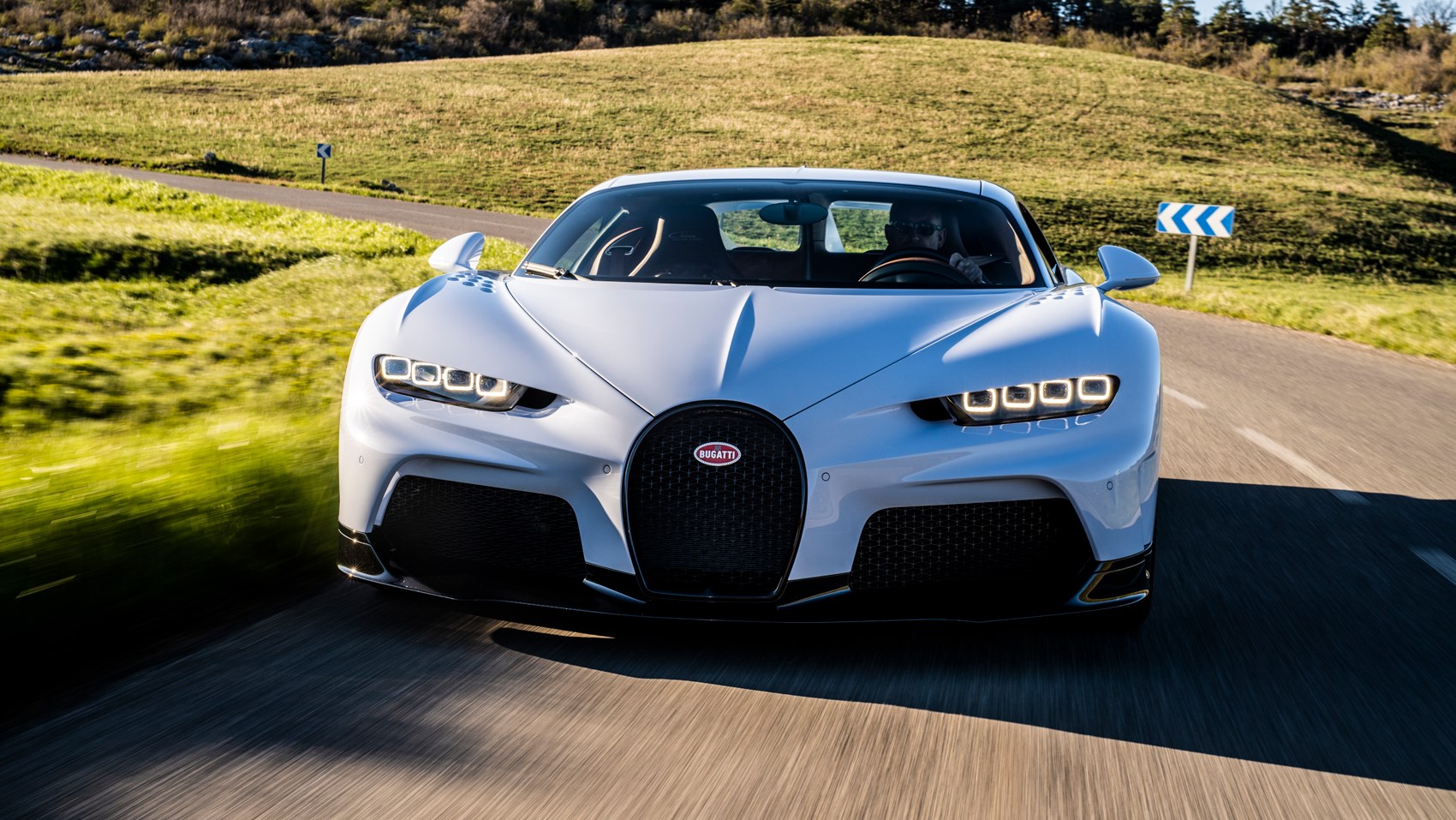
But despite its bonkers top speed, that's not where it was meant to be driven. Bugatti intended the Super Sport as an ur-Chiron, as luxurious and long-legged as the standard car, but with near unanswerable power and speed. It nails that brief. You can cross continents comfortably in this thing, and although the Pur Sport is sharper, the Super Sport still shrinks around you and jinks into corners like a car of two-thirds its mass. It's not just a dragster: it's drivable, docile when you need it to be, and fun. And there are moments, even on the hilly roads around Paul Ricard where the tell-tale indicators on the Super Sport's central console will later confirm that you used all the power, even for a moment.
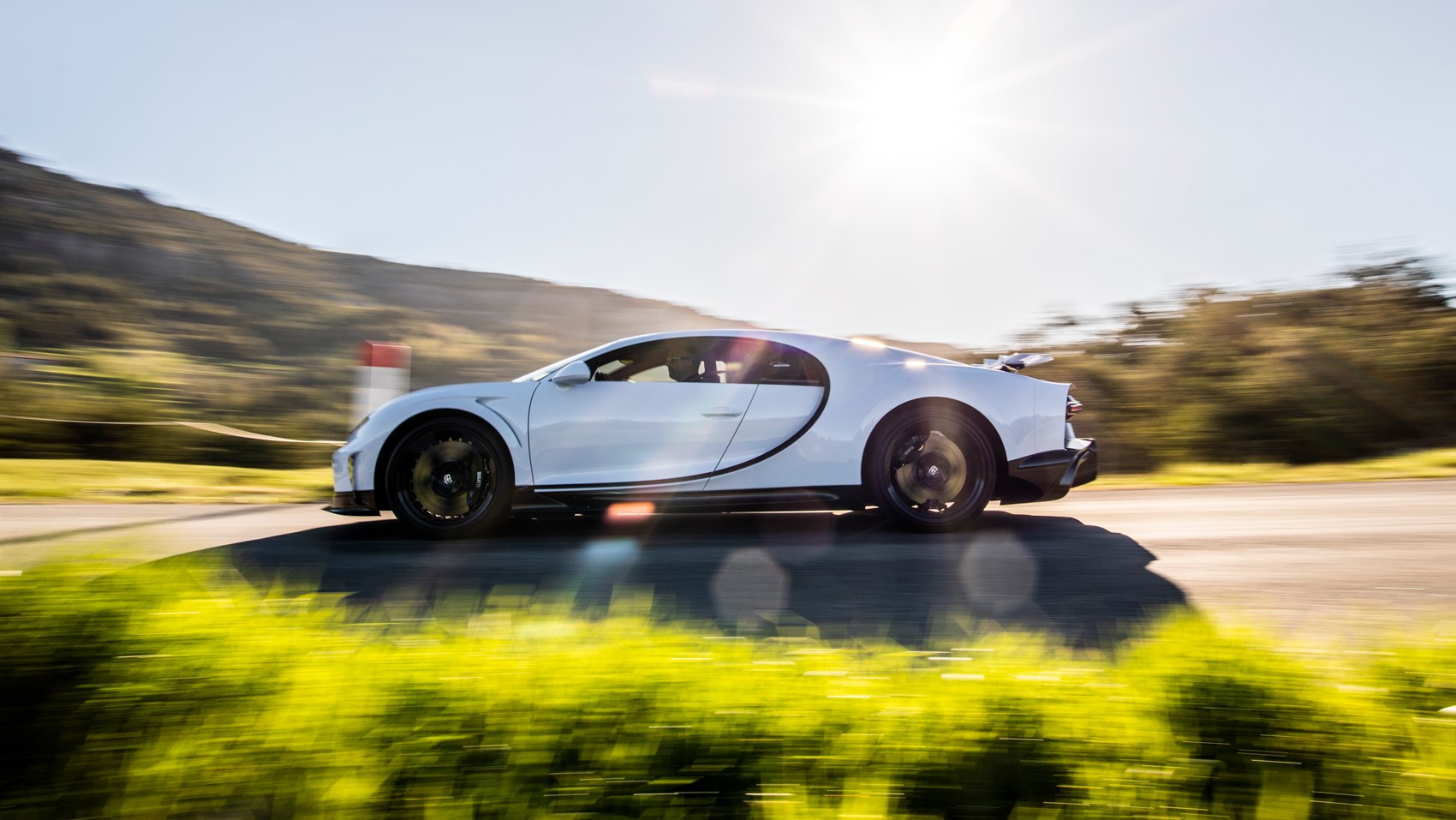
But if you actually want to feel more than fleetingly what you're getting for your €3.2m (£2.7m) before taxes, you need Ehra-Lessien. Even on the Mistral straight you only glimpse it for a few seconds. In a wholly unscientific test, I exited Turn 7 in in both the Pur Sport and the Super Sport and stayed flat until roughly the same, conservative braking point. The tell-tales told me I'd used all the power and all the revs in each car, but with a peak speed of 206mph in the Pur Sport, to the Super Sport's 217mph.
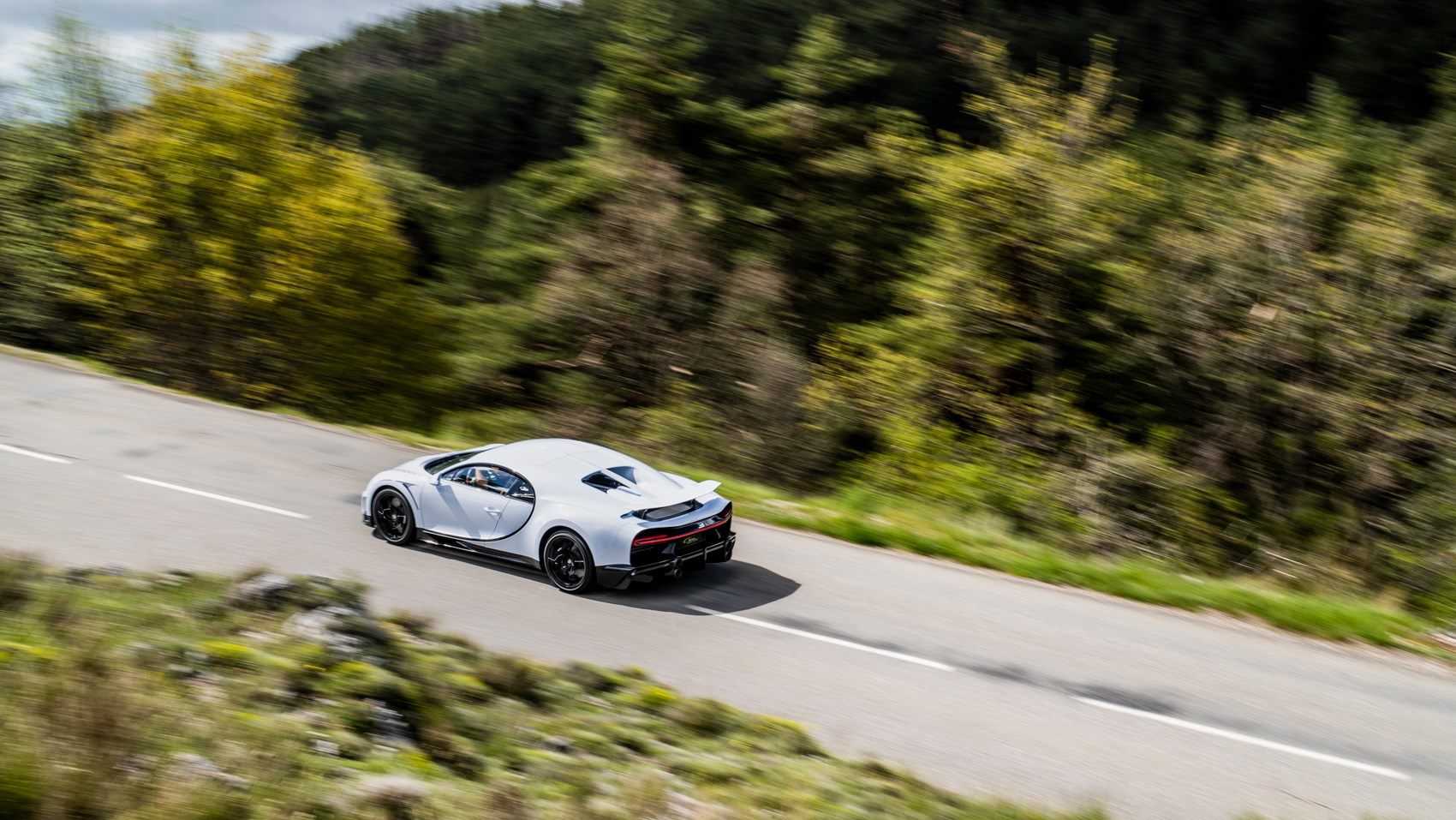
So there it is: the usually academic difference that the manufacturers bicker over and billionaires pay for but few ever witness. It doesn't feel academic when you do it: it feels very real and bloody serious. The power is overwhelming and the speed seems to swell inexorably and was nowhere near relenting, even way beyond 200mph.
And oh, man, the noise. A little disappointing in normal use, the Chiron is just thunderous when you finally get to hold it wide open for any length of time. If this is the swansong for the petrol engine, it's delivered in the deepest basso profundo, and we're going to miss it.
Bugatti Chiron Super Sport: verdict
The physical sensation of being accelerated that hard for that long begins to freak out your inner Neanderthal, but rationally you know that you are nowhere near your car's limits, that it is tracking straight and true, that when you hit the brakes the wing will stand up in its air-brake position, pull the centre of pressure back and allow you to bury your foot. You keep reminding yourself that those engineers back in the pits have signed this madness off.
The Super Sport, then, is a titanic but largely irrelevant achievement. To paraphrase a famous CAR cover from the 1970s: '273mph – but where?'
Source: https://www.carmagazine.co.uk/car-reviews/bugatti/chiron-super-sport/







Tidak ada komentar:
Posting Komentar